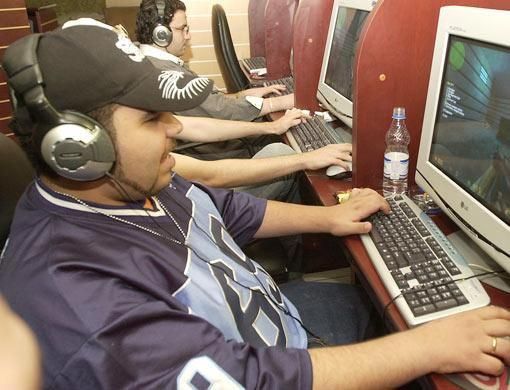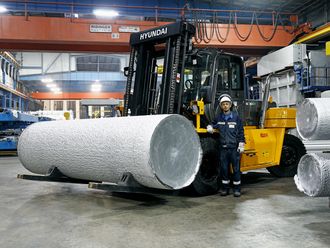Dubai: It's a question of when, not if. Despite some criticism that the Telecommunications Regulatory Authority (TRA) is delaying the legalisation of VoIP to protect the revenue of licensed telecom operators, the agency said that the delay is due to the difficulty of regulating VoIP.
"How to regulate it - this is a lively debated issue," said Adnan Al Bahar, manager of public relations for the TRA. "We are working to regulate it. Currently, we are working on a regulatory framework. It's not finalised yet. It's just taking time because it's not easy to do."
Al Bahar said there is currently no timeframe for the legalisation of VoIP.
VoIP, or voice over internet protocol, allows users to talk to each other through the internet. It is an extremely cheap and popular, albeit illegal, method for expatriates in the UAE to call home. Alan Stocker, director of business development for net2phone, a US-based company that provides VoIP services, said the services his company offers are very much in demand.
"It's going to happen here eventually. It's in demand," he said.
"People are angry that the government is out to make money. They're making money on some poor expat who wants to call out."
He points out that even though his company has an office here in Dubai, they are not here to provide VoIP services to customers. The company's goal is to support its customers in the region.
Ahmad Zeidan, channel sales manager for Netgear, said the TRA should legalising VoIP to help maintain its edge in technology.
"The UAE is usually leading in technology," he said. "Saudi Arabia, who is usually second in technology, is encouraging this in Riyadh. The TRA should open it up."
Netgear, a computer hardware company that is marketing a VoIP phone that doesn't require a computer, would stand to benefit greatly from the legalisation of VoIP in the UAE.
Stocker also points out the legalising VoIP would allow licensed telecom operators in the UAE to tap the so-called "grey market" - those people who currently use VoIP illegally despite attempts to block its use.
"For every block, there is a clever guy who comes up with a way around it," Stocker said. "People will always find a way around a block, and this is lost revenue."
"I'm sure the operators would love to capture the grey market, but that will not happen until the industry is regulated," Al Bahar said.
However, even when the TRA does allow VoIP, there is no guarantee that consumers will be able to use Skype or net2phone.
"When VoIP does become legal, only licensed telecom operators will be allowed to provide the service," said Al Bahar. "The telecommunication industry is regulated in every country in the world. You must have a license and a presence in the UAE if you want to provide telecommunication services."
If Skype wants to provide VoIP in the UAE, it must come here, set up shop, and apply to be a licensed operator, Al Bahar said.
When asked if the TRA's policies could be perceived at anti-consumer, Al Bahar said that perception was narrow-minded. "I don't see the TRA being anti-consumer," he said. "We opened up the market. We are trying to protect consumers. The TRA is a government agency. We have wider issues to worry about. Consumers only have their own concern to worry about."
Your comments
I am an Indian expatriate who closely monitors and is eagerly awaiting the legalisation of VoIP in the UAE, but I believe that the amount that I pay eisalat now for my international calls is not going to be reduced by VoIP.
Sabu
Abu Dhabi,UAE
Some TRA officials comment on 'taking time to regularise the VoIP', which is clearly very difficult to believe. One thing is for sure if VoIP is allowed, we will never see any new building with a golf ball on it.
Vinod
Sharjah,UAE
I don't think rates and clarity is going to be as good as others whom TRA blocked for some baseless reasons.
Abdul
Dubai,UAE
The TRA decision to continue blocking VoIP in the UAE is totally wrong. etisalat and du should make calls cheaper instead of blocking VoIP.
Hussain
Dubai,UAE












